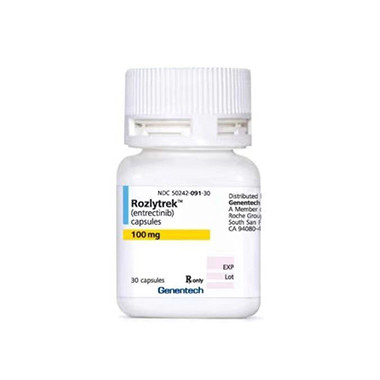How Effective is Entrectinib for Lung Adenocarcinoma?

How Effective is Entrectinib for Lung Adenocarcinoma?
Entrectinib has demonstrated remarkable efficacy in treating lung adenocarcinoma, particularly in patients with acquired ALK, ROS1, or NTRK gene mutations—key drivers of tumor development. As a targeted therapy, entrectinib selectively inhibits these mutated genes, effectively blocking tumor cell growth and division, thereby suppressing cancer progression.
Key Advantages Over Conventional Treatments
Compared to traditional approaches like chemotherapy and radiation—which often have limited efficacy and cause severe side effects—entrectinib offers:
Precision targeting: Minimizes damage to healthy cells, reducing adverse reactions.
Personalized treatment: Tailored based on the patient’s specific genetic mutations, enhancing therapeutic precision.
Clinical Efficacy
Clinical trials reveal that entrectinib achieves an over 80% response rate in lung adenocarcinoma:
ALK-positive patients: Significant tumor shrinkage and prolonged progression-free survival (PFS).
ROS1/NTRK-positive patients: Similarly high efficacy, with robust disease control.
Safety Profile
While some patients experience mild side effects (e.g., fatigue, dizziness), these are typically manageable through dose adjustments or supportive care. Most patients tolerate the treatment well, with no severe toxicity reported.
Important Considerations
Entrectinib is not universally effective—it only works for patients with ALK, ROS1, or NTRK mutations. Thus, genetic testing is essential before treatment initiation to confirm eligibility.
Conclusion
Entrectinib is a highly effective, well-tolerated targeted therapy for lung adenocarcinoma with ALK/ROS1/NTRK mutations, offering significant tumor reduction and delayed progression. However, its use requires prior genetic screening to ensure patient suitability.

